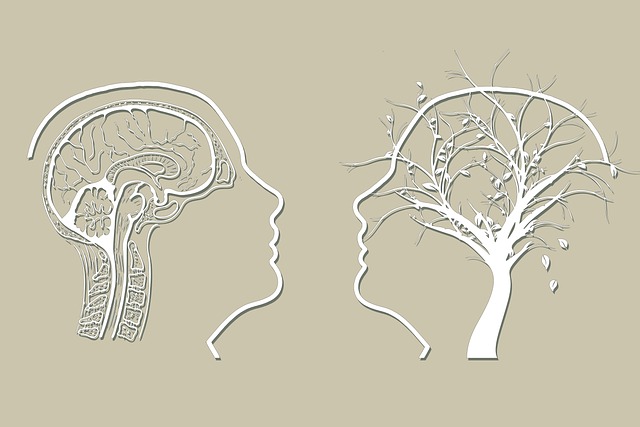Mental wellness journaling is a powerful, accessible therapy for young adults dealing with trauma, offering a private space for emotional processing, self-discovery, and healing. Through regular introspective writing, guided by professionals, individuals gain insights into their mental health, learn coping strategies, and build resilience. This method promotes emotional regulation, fosters self-awareness, and supports long-term mental wellness by empowering young adults to take control of their healing journey.
“Unwind and embrace self-care with mental wellness journaling—a powerful tool designed specifically for young adults navigating life’s challenges. This comprehensive guide explores how expressive writing can serve as therapy, offering a safe space to process trauma and promote emotional healing. From understanding the benefits to practical tips on creating a consistent practice, we delve into strategies to overcome common obstacles. Discover how journaling can empower you to take charge of your mental wellness and foster resilience in the face of trauma.”
- Understanding Mental Wellness Journaling for Young Adults
- The Impact of Trauma on Youth and the Benefits of Journaling
- Creating a Therapeutic Journaling Practice: Tips and Techniques
- Overcoming Challenges and Staying Consistent with Journaling
Understanding Mental Wellness Journaling for Young Adults

Mental wellness journaling is a powerful tool for young adults to explore and navigate their emotions, especially those who have experienced trauma. This therapeutic practice encourages self-reflection and offers a safe space to express thoughts and feelings, promoting emotional regulation. By putting pen to paper, individuals can begin to untangle complex experiences, fostering positive thinking and compassion cultivation practices.
Journaling allows for a deeper understanding of one’s mental wellness, helping young adults develop coping mechanisms and build resilience. Through regular practice, they learn to identify triggers, process difficult memories, and cultivate a sense of self-compassion. This form of therapy is accessible and discreet, providing an alternative approach to traditional talk therapy for those who may be reluctant to seek professional support or prefer a more personal journey towards healing.
The Impact of Trauma on Youth and the Benefits of Journaling

Trauma can have profound and lasting effects on young adults, impacting their emotional regulation, social skills, and overall mental wellness. Many experience challenges in processing and expressing their feelings, leading to potential long-term issues if left unaddressed. This is where therapy for young adults trauma becomes crucial, offering a safe space for healing and recovery. One effective tool within the realm of therapy is Mental Wellness Journaling Exercise Guidance—a simple yet powerful method to help individuals process their experiences and emotions.
Journaling provides an outlet for self-expression, allowing youth to explore their thoughts and feelings without judgment. It fosters self-awareness, enabling them to identify triggers, manage stress, and enhance emotional intelligence. Regularly documenting their journey can also serve as a form of therapy, helping them make sense of traumatic events and work towards recovery. Additionally, incorporating this practice into a Self-Care Routine Development for Better Mental Health encourages proactivity in managing mental wellness, promoting resilience, and improving social skills through the introspective process of journaling.
Creating a Therapeutic Journaling Practice: Tips and Techniques

Creating a therapeutic journaling practice can be a powerful tool for young adults navigating trauma and seeking to build inner strength. Start by setting aside dedicated time each day or week for journaling—a consistent routine fosters mental health awareness and self-reflection. Incorporate prompts that encourage exploration of emotions, thoughts, and experiences; this could include reflecting on triggers, identifying coping strategies, or exploring personal values.
For enhanced therapy sessions, professionals can suggest specific techniques like tracking moods, writing letters to oneself or loved ones, or creating visual representations of feelings. These practices not only support risk management planning but also empower individuals to develop resilience and a deeper understanding of their mental health landscape.
Overcoming Challenges and Staying Consistent with Journaling

Overcoming Challenges is a significant aspect of mental wellness journaling. Many young adults struggling with trauma find that regular writing can serve as an effective therapy, helping them process emotions and gain perspective. Consistency is key; establishing a daily routine encourages self-reflection and fosters inner strength development. Even on days when it feels challenging to put pen to paper, pushing through can lead to profound insights and a confidence boost.
Journaling provides a safe space for self-awareness exercises. By documenting thoughts and experiences, individuals can track their progress, identify patterns, and gain valuable insights into their emotional landscape. This practice supports the healing process, empowers personal growth, and equips young adults with tools to navigate life’s challenges—all essential aspects of building resilience and maintaining good mental health.
Mental wellness journaling can serve as a powerful tool for therapy among young adults, offering a safe space to process trauma and promote emotional well-being. By incorporating reflective writing practices, individuals can gain insights into their thoughts and feelings, fostering personal growth and resilience. The benefits of journaling extend beyond the pages, encouraging consistent self-care and enhanced mental wellness. With dedicated tips and techniques, overcoming challenges becomes manageable, allowing young adults to navigate their emotional journeys with increased confidence and a sense of control over their mental health.














